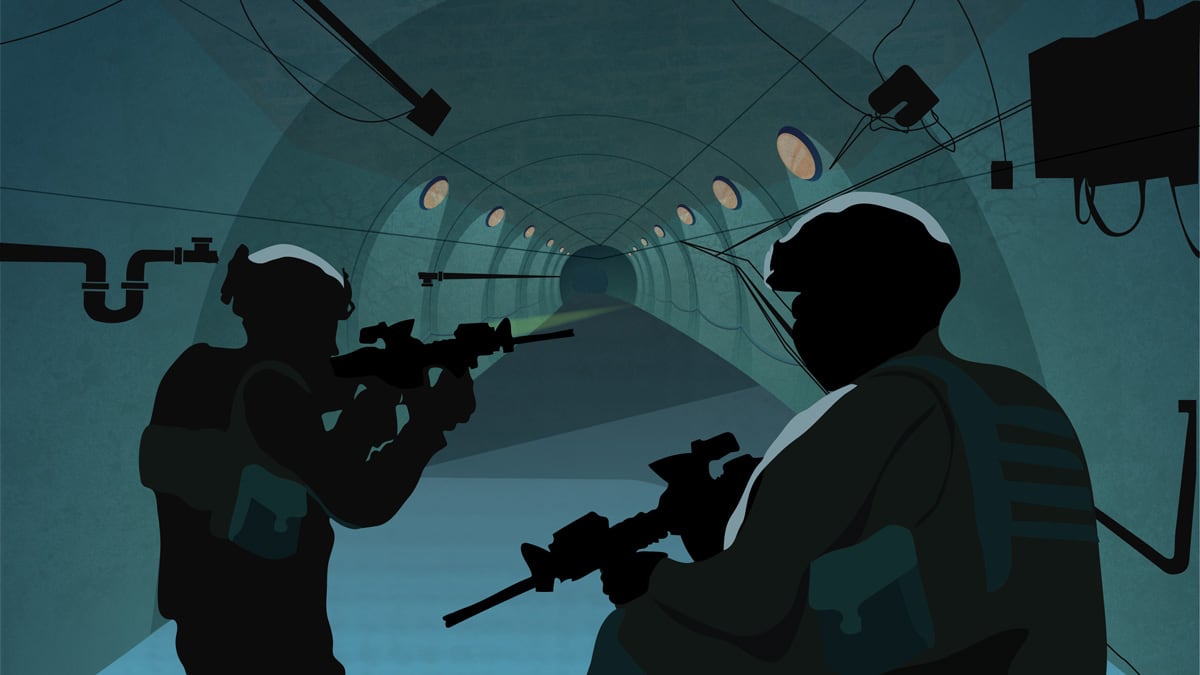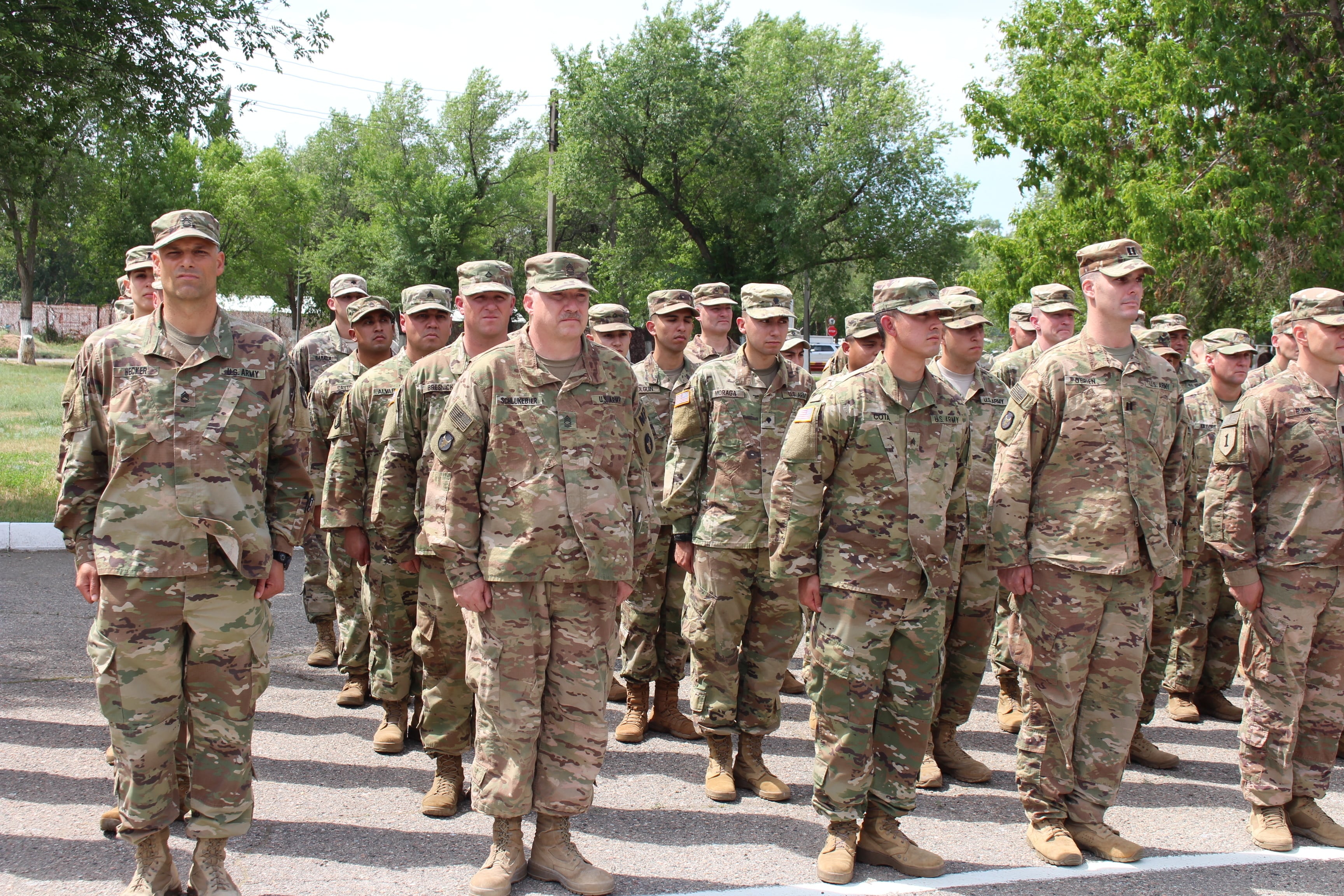How the Army decides who takes on the vital role of battalion command, which often can determine whether that officer will ever become a colonel or general, could see some major upgrades as early as next year.
That’s because this past summer the Army Talent Management Task Force ran a pilot program that would go beyond the standard board review and add a host of additional qualities the Army would evaluate before selecting battalion commanders at an officer’s mid-career point.
Army Chief of Staff Gen. James C. McConville hinted at it in remarks at the annual Maneuver Warfighter Conference at Fort Benning, Georgia.
He called it a different way of picking leaders known as the Battalion Commander Assessment Program.
And McConville has his reasons.
Noting that only a few minutes, if that, are spent reviewing the pile of records for each candidate, he saw that as inadequate for what might be the most career-defining job for an officer.
“We spend more time on an enlisted Ranger than we do on a battalion commander,” McConville said. “Which I would argue is the most important position for the enterprise.”
RELATED

The soldier in charge of both that pilot program and for recent recommendations forwarded to the chief for his decision on whether to approve the BCAP, Maj. Gen. J.P. McGee, sat down with Army Times recently to discuss the program.
Currently, a panel of 25 senior Army leaders looks at a stack of nearly 1,000 candidates for battalion command each year, he said. That means they’re spending just over a minute before assigning a score. That score and others from the board are aggregated and that then determines where the officer falls on the “order of merit” list.
“Is that the very best way for us to be able to pick battalion commanders in the Army?” McGee said.
The pilot BCAP program, if approved by the chief, won’t do away with the board, it will only add to it, he said.
And if initial results prove similar, it could mean big changes for some candidates. When the new factors were added in, some of those saw their placings move up or down by as many as eight positions on the order of merit list.
McGee echoed the importance of the BN commander selection, calling it “one of the most discerning cuts we make.”
If approved, more than 800 candidates in the coming year could see this type of assessment.
How it works
For one week in June and another week in July, the talent management staff took 23 battalion commander candidates who had been put on the alternate list from the most recent selection. They were a combination of infantry and armor officers.
Once those were chosen, before they arrived to begin the two-day process, the task force identified peers and subordinates and sent them a short survey for feedback on the candidate.
In the past, the candidate could select which peers or subordinates would provide comments.
Then the candidates had to pass a height and weight measurement, an Army Physical Fitness Test, a graduate skills online writing test, read and write an argumentative essay on a topic the task force chose, a questionnaire-based psychological screening and a one-hour interview with a behavioral psychologist and complete the leader reaction course.
They also took an undisclosed cognitive/non-cognitive test that helps the Army identify individuals with talents associated with strategic potential, McGee said.
After those days of assessments, a panel of six general officers conducted a “blind board.”
They were given anonymous descriptors of the candidate’s performance, with tiered markers rather than scores of how they performed on most of the assessments. Then the candidates entered the room on the other side of a board and were asked a series of questions.
The general officers then made a pass/fail vote on the candidate.
McGee said both the participants and general officers told the task force the methods were a better way of choosing commanders.
The two-star expanded on some of the thinking between the traditional evaluation vs. an assessment.
By their nature, evaluations can be subjective, which isn’t all bad.
McGee noted that when he was a brigade commander with 101st Airborne Division, he conducted senior rater evaluations, putting his company commanders in rank order.
“I surely did mine differently than the second or third brigade commander,” he said.
Uniformity in decisions
But the assessment adds some uniformity to the information. An APFT is an APFT and reviewers clearly understand that score, for example.
What an assessment can do for the larger effort is help the Army train its future leaders in what they want them to be good at when they reach their mid-career point.
McGee pointed to the APFT and the transition to the Army Combat Fitness Test. That is prioritizing new efforts that go beyond what was formerly the standard.
“For those of us who’ve been in the Army for some time like I have, we’re very comfortable doing two minutes of pushups, two minutes of sit-ups and a two-mile run,” he said.
But soldiers have to retrain themselves for the ACFT because that’s the new priority.
Similarly, if young officers see that to become a battalion commander, the Army expects them to be able to communicate verbally and to write well, then they’ll start working on those aspects, too.
‘Culture of assessments’
And that’s part of a larger push to build a “culture of assessments” that would be with an officer from pre-commissioning to retirement.
For instance, assessments help determine cadet branching to best match their skills with jobs they’d be successful at. And this past year the captains course began requiring students to take the Graduate Record Examination to help the Army see who might have success at higher-level schools later in their career.
But the work that’s being done to evolve assessments in the service is not all aimed at the Army’s goals. The candidates will get something too, he said.
“I think they’ll get a level of confidence that they’ve been through a system and process that is rigorous, that they’ve been measured and looked at and they have been deemed the right person to put in command from all kinds of objective viewpoints,” he said.
Todd South has written about crime, courts, government and the military for multiple publications since 2004 and was named a 2014 Pulitzer finalist for a co-written project on witness intimidation. Todd is a Marine veteran of the Iraq War.





